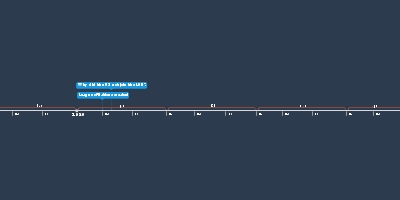dec 5, 1934 - Abyssinian Crisis (+ Hoare Laval Pact)
Description:
Background Info:- The origin of this crisis happened in 1896 when Italian troops tried to invade Abyssinia but were defeated by a poorly equipped army of tribesmen in Abyssinia. Mussolini wanted revenge for this humiliating defeat, and he also had an eye on the fertile land and mineral wealth within Abyssinia (this was especially important since this event happened during the great depression), but most importantly, Mussolini wanted glory and conquest, as his style of leadership needed military victories, and he often talked about restoring the glory of the roman empire.
- In December 1934 there was a dispute between Italian and Abyssinian soldiers at the Wal-Wal oasis that was 80 km inside Abyssinia. Mussolini took this chance and claimed this was Italian territory. He demanded an apology and began preparing the Italian army for an invasion of Abyssinia. The Abyssinian emperor asked the LON for help.
From January 1935 to October 1935, Mussolini was negotiating with the LON to settle the dispute. However, he was also shipping his vast army to Africa and whipping up war fever among the Italian people. at the same time.
Along with that, Britain and France failed to take the situation seriously and played for time, this was because they were desperate to keep Mussolini as an ally since he was the strongest ally against Hitler. They had also signed a pact called the Stresa Pact which was a formal statement against the rearmament of Germany and a commitment to stay united against Germany. In fact, in the meeting of the Stresa Pact, there was no discussion on the topic of Abyssinia whatsoever, making Mussolini believe Britain and France were turning a blind eye because Italy had joined them in the Stresa pact.
However, as the years went on, the public started not liking Italy's' behavior, and in fact, a majority of British people supported the use of military force to defend Abyssinia if necessary. There was much talking and negotiating within the LON, but never actually did anything to discourage Mussolini. On September 4th (after 8 months of 'thinking'), a committee reported to the LON and stated that neither side could be held responsible for the tension within the Wal-Wal incident. With this, the LON put forward a plan of giving some of Abyssinia to Mussolini, but Mussolini rejected it.
In October 1935, Mussolini's army was ready to invade Abyssinia, and he threw a full-scale invasion. Unfortunately, the Abyssinians were no match for the Italian military. This was a clear case of a large state attacking a small state. The LON was designed for this type of issue and was ideally placed to act (unlike the Manchurian crisis).
The covenant made it clear that sanctions must be introduced against the aggressor. The LON banned arms sales, loans, imports, and exports of rubber, tin, and metals to Italy. However, the LON delayed a decision for 2 months, which was whether to ban oil exports in Italy. This was because the LON feared that the US wouldn't support it. It also feared that its member's economic states would be further damaged (eg 30,000 British coal miners would lose their job because of the coal exports to Italy). And, more importantly, the Suez Canal which was owned by Britain and France was not closed to Mussolini. The canal was Italy's main supply route to Abyssinia, closing it would have ended the situation much faster, but Britain and France were afraid this would have resulted in a war with Italy.
To make matters worse, there was a deal between France and Britain behind the scenes the entire time. In December 1935, while the sanction was still being discussed, the British and French prime ministers (Hoare and Laval), were hatching a plan. The plan was to give Mussolini 2/3 of Abyssinia in return for him calling off the invasion. Laval had even proposed to tell the plan to Mussolini before showing it to the LON of the prime minister of Abyssinia. Laval had told the British that if they did not agree to the plan, they would no longer support sanctions against Italy.
The question about the oil sanctions was further delayed, and in February 1936 the committee concluded that if oil sanctions were placed the Italian supply would be exhausted in 2 months, even with the US's support. But by then, it was all too late, Mussolini had already taken over large parts of Abyssinia.
By March 1936, a fatal blow was delivered. Hitler had marched his troops into the Rhineland at the perfect time. This meant that if there was any hope that the French supported the sanctions, it was gone because now France needed to do all it could to get Italy's support against Germany since Italy was the strongest ally to have against the Germans. Ital continued to defy the LON's orders and by May 1936 had taken the capital of Abyssinia. In the same month, the prime minister was exiled, and Mussolini annexed the whole country.
The LON had failed, they were slow to act and had a lot of disagreements, and this was a clear case of large nations taking power over smaller nations.
Added to timeline:
Date:
dec 5, 1934
Now
~ 90 years ago
